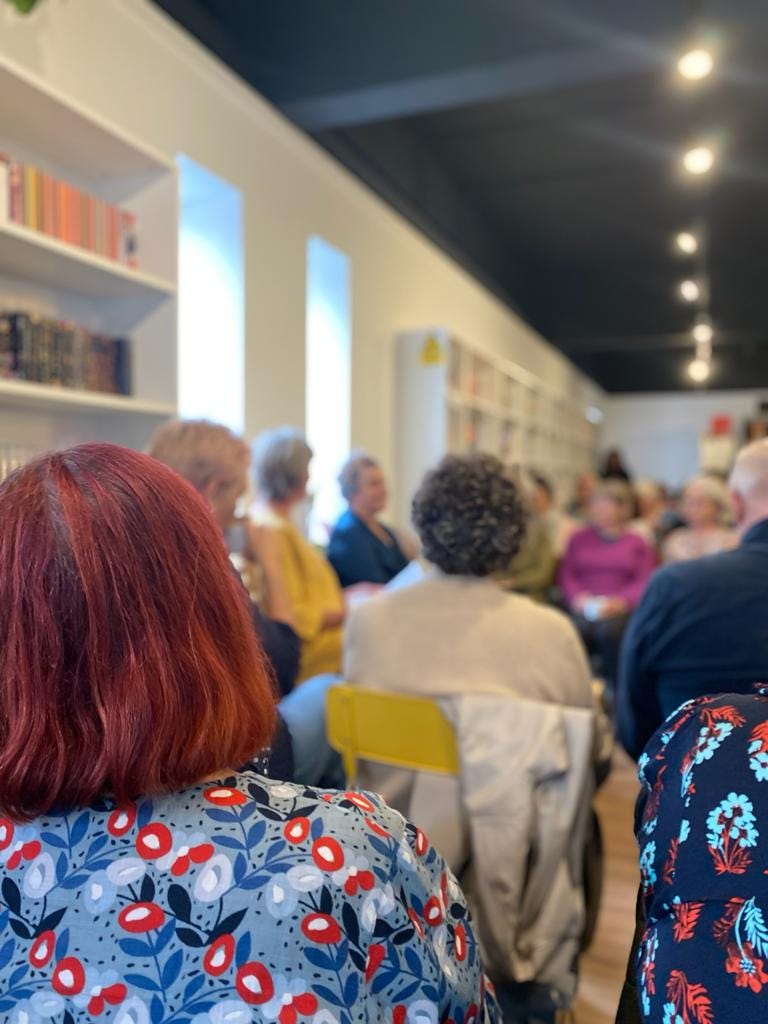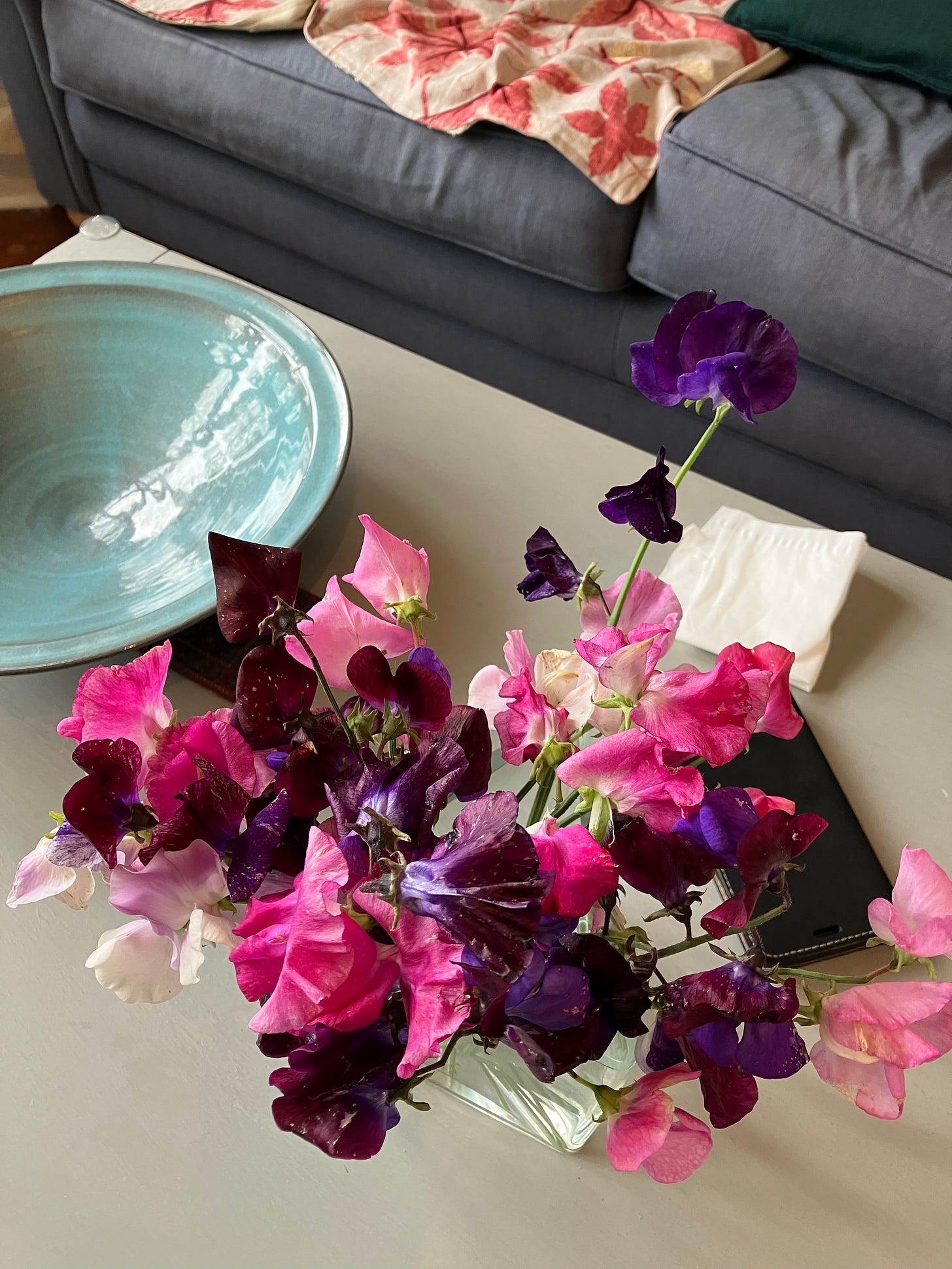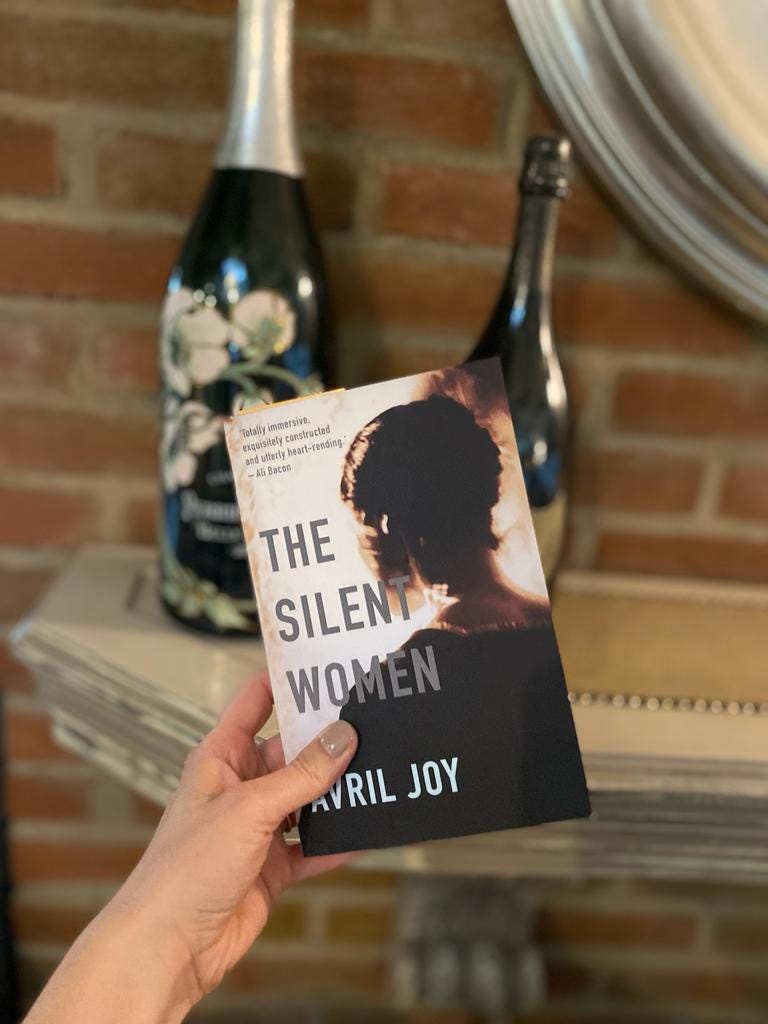In the past I’ve been guilty of advising writers to write for yourself. It's not bad advice when you're starting out and impostor syndrome is roaring in your ears. It can be comforting to think you won't have to share your work with the world and discover that it might be, as you fear, not good enough. I write first and foremost for myself is also something I've said, and there is a sense in which this is true, for not to write renders me miserable and at a loss, as if I am floating, unmoored throughout my days without purpose or the deep satisfaction that the act of writing brings. But if I ask myself the question, as I have been asked, would you write if you knew no one was going to read your work, then I am less sure of my answer. If this were so, I think I might still write a journal, I might even write poetry but I would not write a novel. And I would not write this newsletter.
Stories are our lifeblood; there to be shared. We save them up to tell our friends, family, acquaintances. The telling promotes connection, understanding, helps us make sense of the world, acts as warning, informs debate and discussion, and inspires empathy. At their most powerful stories are transformative, enabling us to see the world from the perspective of others, enabling us to enter an entirely different experience from our own. A good novel may do any or all of these things but without a reader it is mute, disengaged, somewhat like the women in my novel. Without you, the reader, my book and my newsletter have no home and no prospect of life. They may as well sit unpublished in a drawer in my desk.
It’s perhaps not surprising then, that I care very much what readers think of, The Silent Women. I do not expect everyone to love it or even like it but what I hope for is that it connects with at least some of its readers. And what I love as a writer is the way in which the book is born again and transformed, by every reader it meets, in the alchemy of reading.
Readers are unique, each bringing their whole selves and history to a book and as a result finding references and resonance that may even be hidden to you as its writer. Like Simon, the young man at my book launch on Wednesday, who said he'd noticed how references to drowning, both literal and metaphorical, appeared throughout my book. Was it deliberate he asked? God no, I thought, I hadn't even noticed it and yet I knew he was right. Of course it would be there, for as I explained in my reply, I have a thing about drowning and it finds its way into all my books which are in general very watery.
I grew up in Burnham on Sea, in Somerset, a place where the high rise and fall of the tides and the resulting currents made swimming a dangerous occupation. Hardly a summer passed without a drowning. Drowning was a real and present threat to me throughout my childhood and adolescence, it lives in my subconscious and it’s therefore no surprise that it appears on the page without me always realising.
In conversation with Caroline, who chaired the event brilliantly, not just in mine but in everyone's estimation (and if you haven't subscribed to her Substack DIRT, you don't know what you're missing - check it out here ) I learned how noisy my book was, ironic when you consider the part that silence plays. But there are all kinds of silence, said Caroline, and this was filled with noise. She reminded me of the persistent throb of the pumping station out in the fens, the wheels of the trolley on the corridor at night, muffled voices, the iron rattle of keys against hard surfaces. Caroline who was a radio journalist with the BBC in a former life, had tuned in to this sensory aspect of the book, and to how threatening the noises were. Some of this was deliberate on my part, the trolley wheels in particular, but I hadn't thought how much my experience of working in a similar closed institution, Low Newton Women's Prison, for so many years, meant the noises lived in me and I rendered many of them instinctively, without intention, on the page.
In another interesting resonance, my brother Mark who is a mathematician, remarked, as have other readers, on the right justification and the ragged left of Phoebe Baines's testimony. This was deliberate on my part. I decided on it because I wanted to indicate difference, disorder, and the workings of a fragile mind and this seemed to work for me. I really don’t know where it came from though I do know I did not consider it to be poetry. Mark told me that mathematician Donald Knuth, a professor at Stanford, who’d worked on a programme to digitalise the complex typesetting of mathematical text, said if you want your reader to sit up and take notice, then use a ragged left justification. It appears I discovered this too. In my earlier conversations with Caroline, she told me that whenever she came to Phoebe 's story the formatting stopped her in her tracks.
Every reader is a gift to a writer, and hearing readers' thoughts and getting their feedback enriches my life writing life beyond measure. Wednesday evening's launch offered similar enrichment. I am never sure about such events, but it couldn't have been better - a super venue, a wonderful talented friend hosting with me, my family and my friends there, a beautiful bunch of sweet peas from my best friend, and then people I really didn't expect to see like Norma and Hayden and Lisette who had made such efforts to be there. There were new faces too, meeting Katherine, all the way from Seattle, was a joy and I hope we may catch up again when she's in the UK.
Thank you all for filling the venue, for buying the book and bringing it to life. I feel very fortunate, and I really enjoyed the champagne my son and brother bought in celebration, it was a real splurge
.
For anyone interested in hearing about, The Silent Women, and who couldn’t make it to the launch (or even if you did make the launch but are eager for more) Linen Press are hosting an online launch on Wednesday, August 30th. 7pm. You can book your free ticket HERE. At this virtual launch I will be talking about how I created the fictional world of my novel, Long Meadow Asylum, and the women who lived there.
If you haven't read, The Silent Women, and would like to, you can buy it here. If you do decide to buy - only really the price of coffee and cake - I will be indebted to you as I am to every reader, as will be my small independent publisher, and I can only hope the book brings you the interest, absorption, and pleasure that the best reading brings me.
While we're on the subject of reading, any thoughts about the Booker longlist? It's not something I normally take much notice of but I was intrigued to see authors much less well known represented, delighted too, to see author, Martin MacInnes, listed, who I met when we were both shortlisted for the Manchester Prize for Fiction, (he rightly won) and who is a lovely guy. But I've been disappointed in sampling at least three of the books which I have to say are not for me. Ruthless as sampling sounds, I really find I cannot read a whole book now that doesn't engage me, but I'll keep going on the list and do leave your thoughts below if you have any
As always thanks for reading
Thanks for being my readers
Avril x





